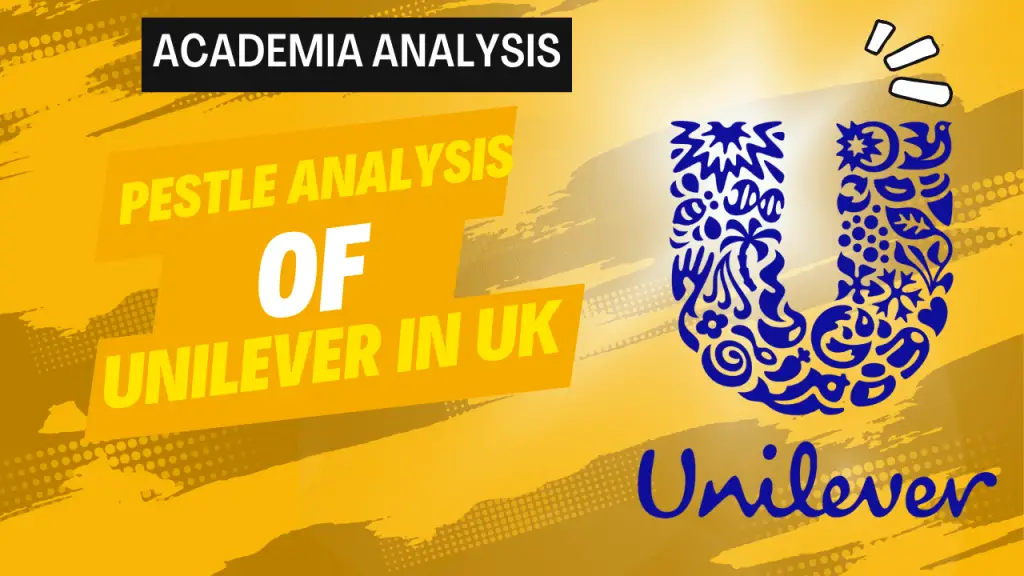Penshoppe is a clothing brand that was founded in the Philippines in 1986. Over the years, the brand has become a household name in the country and has expanded globally, with stores in different parts of Asia, the Middle East, and North America. Penshoppe is known for its trendy and fashionable clothing, targeting young adults who are looking for stylish yet affordable apparel.
The brand offers a wide range of clothing items, from casual wear to formal attire, and has collaborated with celebrities and influencers to promote its products. With its commitment to providing high-quality fashion at an accessible price point, Penshoppe has established itself as a major player in the fashion industry.
Political Factors
Penshoppe is a fashion retail brand based in the Philippines, and as such, it is influenced by various political factors that affect the business environment in the country. Here are some examples of political factors that could affect Penshoppe:
Government policies: The government policies on taxation, trade, labor laws, and import-export regulations can affect Penshoppe’s operations, supply chain, and profitability. For example, changes in tax policies may increase the cost of goods and services, which can affect the company’s pricing strategies.
Political stability: Political stability is important for any business as it ensures a predictable and consistent business environment. Any instability or changes in the political environment can affect consumer behavior, business confidence, and economic growth, all of which can impact Penshoppe’s revenue and profitability.
Corruption: Corruption is a significant issue in the Philippines, and it can have an impact on the business environment. It can affect the ease of doing business, increase the cost of compliance, and lead to unfair competition. This can also affect Penshoppe’s operations and profitability.
International relations: The Philippines’ relations with other countries can have an impact on Penshoppe’s operations. For instance, trade agreements, political tensions, and sanctions can affect the company’s supply chain and access to key markets.
Labor laws: Labor laws in the Philippines can affect the employment practices of Penshoppe. Changes in minimum wage laws, benefits, and labor union policies can have an impact on the company’s costs and workforce management.
Penshoppe operates in a complex and dynamic business environment that is influenced by various political factors. The company needs to be aware of these factors and adapt its strategies accordingly to ensure its long-term success.
Economic Factors
Penshoppe is a popular clothing brand in the Philippines, and there are several economic factors that can impact its operations and success. Here are some of the key economic factors that could affect Penshoppe:
Consumer Spending: The amount of money that consumers are willing to spend on clothing can greatly impact Penshoppe’s sales. During times of economic growth and stability, consumers may have more disposable income to spend on clothing, which can benefit the company. However, during times of economic downturn, consumers may cut back on non-essential purchases, which could lead to decreased sales.
Exchange Rates: Since Penshoppe sources many of its materials and products from overseas, exchange rates can significantly affect its costs and profitability. A stronger Philippine peso relative to other currencies can make it more expensive to import materials and products, while a weaker peso can make it cheaper.
Labor Costs: The cost of labor in the Philippines can also impact Penshoppe’s operations. If labor costs increase, this can lead to higher production costs, which could result in higher prices for consumers or lower profit margins for the company.
Competition: Penshoppe operates in a highly competitive industry, with many other clothing brands vying for consumer attention and market share. Economic factors such as changes in consumer preferences or the entry of new competitors could affect Penshoppe’s sales and profitability.
Government Policies: Government policies such as tariffs, taxes, and trade regulations can also affect Penshoppe’s operations. For example, changes in import tariffs could increase the cost of importing materials, while changes in tax policies could impact consumer spending patterns. Additionally, changes in labor laws could affect the company’s hiring practices and labor costs.
Social Factors
Penshoppe is a clothing brand based in the Philippines, and its social factors can refer to various aspects of the brand’s interaction with society. Here are some possible social factors related to Penshoppe:
Brand image and reputation: Penshoppe’s brand image and reputation are important social factors that can influence how people perceive the brand. Positive associations with quality, style, and affordability can help attract more customers and create a loyal following.
Target market and demographics: Penshoppe’s target market and demographics can also affect the brand’s social factors. For example, if Penshoppe caters to a younger audience, it may need to be more active on social media and engage in influencer marketing to reach its desired audience.
Community involvement: Penshoppe’s involvement in local communities can have a positive impact on its social factors. Supporting local initiatives, charities, and events can help the brand build goodwill and a positive reputation among consumers.
Corporate social responsibility: Penshoppe’s commitment to corporate social responsibility can also influence its social factors. By implementing sustainable practices, supporting ethical sourcing, and giving back to society, Penshoppe can demonstrate its values and contribute to a better world.
Competition: Penshoppe’s social factors can also be affected by the competitive landscape. Understanding the competition and differentiating the brand from its rivals can help Penshoppe stand out and attract more customers.
Overall, Penshoppe’s social factors are an important aspect of the brand’s success and can influence how it is perceived by consumers and the wider community.
Technology Factors
Penshoppe is a fashion brand that primarily focuses on clothing and accessories. While technology may not be the core of its business, it does play a significant role in several aspects of Penshoppe’s operations. Here are some technology factors that may be relevant to Penshoppe:
E-commerce platform: Penshoppe has an online store that enables customers to purchase their products conveniently. The company has to ensure that their e-commerce platform is user-friendly, fast, and secure to provide an excellent shopping experience to their customers.
Social media presence: Penshoppe has a significant social media following, which it uses to promote its products and engage with customers. Technology plays a crucial role in managing the brand’s social media accounts, creating content, and analyzing engagement metrics.
Supply chain management: Technology helps Penshoppe manage its supply chain more efficiently, from sourcing raw materials to delivering finished products to customers. The company may use various software applications and systems to track inventory levels, manage logistics, and monitor production processes.
Data analytics: Penshoppe may use data analytics tools to gain insights into customer behavior and preferences, which can inform its marketing and sales strategies. The company may collect data from various sources, such as online purchases, social media interactions, and website traffic.
Point of sale (POS) systems: Technology plays a vital role in Penshoppe’s brick-and-mortar stores by enabling the company to process payments, manage inventory, and generate sales reports. The company may use POS systems that integrate with its e-commerce platform to provide a seamless omnichannel shopping experience to its customers.
Technology plays a critical role in Penshoppe’s operations, from enabling online sales to optimizing supply chain management and improving customer engagement.
Legal Factors
Penshoppe is a clothing brand based in the Philippines. As a business operating in the Philippines, Penshoppe is subject to a number of legal factors that may impact its operations. Some of these legal factors may include:
Labor laws: Penshoppe is subject to Philippine labor laws which set minimum wage rates, regulate working hours, and establish labor standards such as occupational safety and health standards, mandatory benefits, and termination procedures.
Intellectual property laws: Penshoppe may need to protect its trademarks, copyrights, and other intellectual property from infringement by competitors or other third parties. This involves complying with Philippine laws governing intellectual property, including registration requirements and enforcement procedures.
Environmental laws: Penshoppe may need to comply with Philippine environmental laws that regulate pollution, waste management, and other environmental impacts of its operations. This may involve obtaining permits or complying with environmental standards or regulations.
Tax laws: Penshoppe is required to comply with Philippine tax laws, including income tax, value-added tax, and other taxes applicable to its operations. This includes proper registration with the Bureau of Internal Revenue and timely filing and payment of taxes.
Consumer protection laws: Penshoppe is subject to consumer protection laws that govern advertising, labeling, product safety, and other aspects of consumer protection. This includes complying with regulations related to product labeling, warranties, and disclosures.
These are just a few examples of the legal factors that may impact Penshoppe’s operations. Other legal factors may include regulations related to imports and exports, data privacy, and corporate governance, among others.
Environmental Factors
Penshoppe is a clothing brand that operates in the fashion industry, and as such, its operations and products can have a significant impact on the environment. Here are some environmental factors that may be associated with Penshoppe:
Raw materials: The materials used in Penshoppe’s products can have a significant impact on the environment. For example, if Penshoppe uses materials that are not sustainably sourced or are produced using environmentally harmful processes, it can lead to deforestation, pollution, and other negative environmental impacts.
Energy consumption: The production process of Penshoppe’s products requires a lot of energy. This energy consumption can contribute to greenhouse gas emissions, which are a significant cause of climate change.
Waste generation: The fashion industry is notorious for generating a significant amount of waste, including textile waste, packaging waste, and other types of waste. Penshoppe must ensure that its production processes are as efficient as possible to minimize the amount of waste generated.
Water consumption: The fashion industry is also known for its high water consumption. The production process of Penshoppe’s products requires a significant amount of water, which can contribute to water scarcity and other environmental issues.
Social responsibility: Penshoppe has a responsibility to ensure that its operations and products do not harm the environment or the people who produce them. It is essential to ensure that Penshoppe’s suppliers and partners follow sustainable and ethical practices.
Penshoppe should focus on implementing sustainable and environmentally friendly practices in its operations to reduce its environmental impact. It should also ensure that its suppliers and partners adhere to similar principles.






